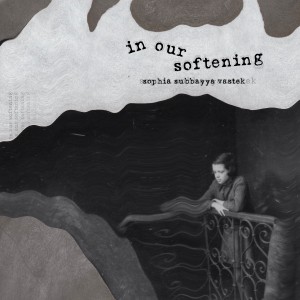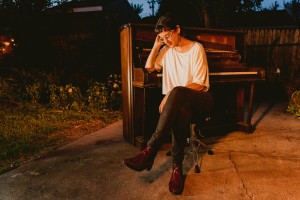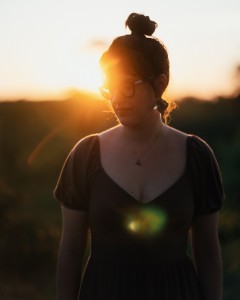
Artist
IMAGES: To download, click above. Image one by Kiki Vassilakis. Image two by Zach Durocher.
Sophia Subbayya Vastek
Sophia Subbayya Vastek’s life has been intertwined with pianos since birth. Growing up with two professional pianists as parents, she was often found coloring in the back of a rehearsal room, or napping under the pianos as they thundered above. When she was grappling with the sudden death of her father in 2015 and subsequent loss of sensation in her fingers, well into her own musical career, the piano was the foundation for her slow journey back to music-making. It was in the summer of 2020 though, during those confounding early days of the COVID-19 pandemic, that Sophia crossed paths with a humble upright that hadn’t been touched in years. Unwanted pianos of varying levels of decay are everywhere, and usually unremarkable. This one, on the other hand, would turn out to be something extraordinary.
Housed in a church building in Troy, NY, the piano’s recent history was murky and marred: it had been sharing space with a well-documented hate group. Masquerading as religion, members of this group were required to touch pork products before entering the building, seemingly to ensure visitors were neither Muslim nor Jewish. They held multiple “raffles” for AR-15’s in a community that knows all too well the devastating effects of gun violence. They called those joining the Black Lives Matter movement “savages.” Videos shared online show the mocking of victims of sexual abuse.
Meanwhile, sitting quietly in a corner of the same space, observing, was the tender upright piano.
This desecrated church building had since changed ownership by the time it came into Sophia’s orbit, having been transformed into a dear friend’s home and art studio. Walls that were once painted black were washed over in bright white, and covered with vibrant artwork. And the all-seeing piano, unmoved and layered in grime, came into Sophia’s hands.
I remember audibly gasping the first time I played this precious instrument. The sound was just so beautiful. It was unlike any other piano I had ever played. It also quickly became apparent that it had an important story to tell – a private journey from hardness to softness. It had been absorbing that hate for so many years…. It was imploring me to listen.
In Our Softening conjures an expansive definition of softness. Most pianos harden with age, the hammers’ felt getting compacted through time and use. Inexplicably, this upright had softened through the years. With a giant crack in the soundboard and all original parts from when it was built in 1902, the sound is never perfect, nor always in tune. But its vibrant intimacy immediately draws a listener in. The sound is impossibly warm, complex, and sometimes barely audible. Through delicate sound engineering, the listener is able to experience the piano as Sophia does – with every click, squeak, and hammer fully present.
This record is an invitation to softness – of our minds, bodies, and hearts – and humility, as well as an invitation to remain permeable and receptive to change. It is an invitation to listen quietly inwards, knowing that as we deepen our understanding within, we can deepen our relationship with our communities and the world around us.
We are bombarded with digital media that profits from isolating and dividing us, and from making us numb and hardened towards each other. We are battered with information designed to outrage us, without deeper, slower inquiry. In this context, softening the self is a radical act. Nurturing relationships that are unapologetically sincere and tender is a radical act.
In Our Softening is Sophia’s first full-length record since Histories in 2017. During the making of that previous album, Sophia was in the throes of mourning what she had lost with the death of her father, and subsequently attempting to reclaim her own histories on all sides of her family. At first glance, the two records seem worlds apart, but with tracks dedicated to her mother, maternal grandfather, and father, it’s clear that many of the same questions linger five years later. What parts of our ancestries can we lay claim to? How can we interact with our inherited stories, those both recent and those that echo back through generations?
This new record also marks a noteworthy shift for the artist. While Histories looked outward and contained music written exclusively by other composers, In Our Softening features solely the artist’s own music. Grounded in spaciousness throughout, Sophia’s compositions are at times kinetic and propelled by vast, hazy soundscapes.
Created in the most intimate of settings, In Our Softening was written, recorded, and produced at Sophia’s home in Troy, New York, with her husband, Sam Torres, as sound engineer. This record sees her softening into a new role as the creator of her own music and the author of her own stories.
I reject the notion that resilience is a positive trait, because I don’t believe we should ever justify or glorify the hardship that leads to it. Through our collective softening, we can open ourselves to the full, sweeping, emotional experience of our lives. This is how we build relationships that are grounded in care – with both ourselves and the world around us. I do believe this is one of the most essential tasks of our time. The work is done slowly and quietly, and there’s no public praise for it. Hardness blazes around us, but softness is also everywhere if we look for it and cultivate it.



